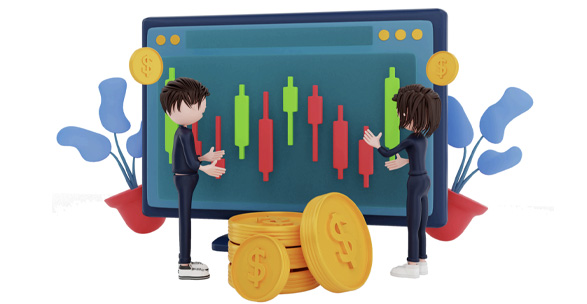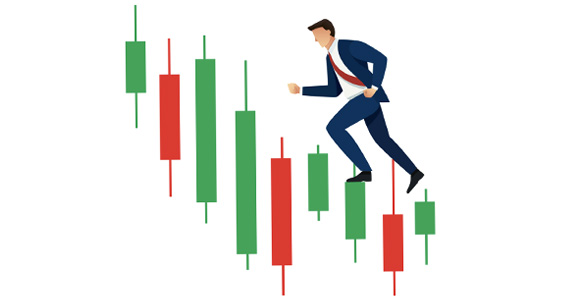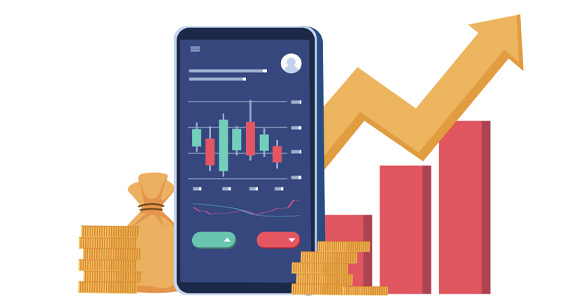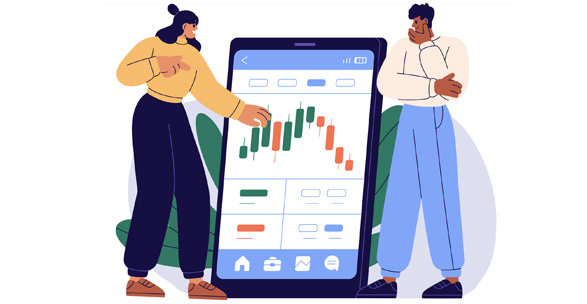Masters - Demo to live
Since the introduction of demo accounts, traders' ambitions have skyrocketed, only to be crushed when they transition to trading real money...

Demo to Live, the Psychology of Handling Money
Since the introduction of demo accounts, traders' ambitions have skyrocketed, only to be crushed when they transition to trading real money. It's similar to dating your first crush and then being dumped shortly after. Although we’ve touched on trading psychology, it's important to delve deeper into a common trait that often acts as a mental barrier for traders: their direct emotional attachment to trading capital. This attachment can severely affect trading decisions. The purpose of a demo account is to give novice traders a feel for the live market without the emotional weight of real money. Unfortunately, the human trait of greed often leads traders to take high-risk, over-leveraged trades they wouldn’t dream of attempting with their real hard-earned funds.

Kicking the Addiction
The moment a trader makes a quick £500 in an hour, their life is changed forever. After that, would you be content working a £10-anhour job? Of course not. However, without controlling this addiction to quick wins, traders can head for disaster. The secret to success lies in patience and remaining grounded. A critical mantra in trading is “Trade smart, not often.” Memorize it, repeat it every day, and implant it in your subconscious. Many traders fall into the trap of always "needing" to be in a trade, not knowing when to step back. If this sounds like you, it’s essential to break this habit. Trading is about the quality of your trades, not the quantity. Never trade money you cannot afford to lose. There’s no shame in continuing to practice on a demo account until your skills are ready, and you have the funds available. Treat your trades like soldiers in a battle—the battlefield is the market, and not every battle is worth fighting. Choose your trades wisely, and protect your capital.

Starting Small
Trading is not a race, and there’s no finish line. A winning streak for 4-5 days may make a trader feel invincible, but this can quickly lead to the loss of an entire trading account. This happens when traders chase quick gains instead of taking the gradual steps needed to build a long-term, successful trading career.
- Consistency: Success in the market over a few days or weeks is not unusual, but maintaining that success consistently over months is the real challenge. You can only start trading larger sums once you’ve built confidence through consistent results. Don’t make the mistake of entering too many trades each week— focus on making each week as profitable as the last.
- Experience: There are no shortcuts to success in trading. It’s irrelevant whether you’re profitable next month or next year; what matters is building solid foundations for long-term success. The market will teach you more about life than any formal education, and your trading journey will become one of selffulfillment and inner growth. The setbacks you encounter will serve as valuable lessons that shape you into a stronger, wiser trader.

Back-testing
With so many trading systems out there, it can be challenging to decide which one to use. Our advice: stick with a system until you've fully tested it. One common mistake among amateur traders is abandoning a system too early. Markets can turn unexpectedly, and while you may have a system that performs well initially, even a few losses can cause you to lose faith. It’s just as important to analyze your past trades as it is to plan future ones. Before trading with real money, backtest your system for at least four months to ensure it's genuinely profitable. Even starting with a $250 account can help you practice both your trading strategy and the psychological aspects of handling money. Focus on pips, and the profits will follow.

The Big Leagues
If you’ve made it this far, it’s likely that you’re aiming to become a full-time trader. At this stage, you’re probably wondering about the answers to questions like: What size account do I need? How much can I make per month? How much money or percentage gain can I expect per day or week? When am I ready to trade my life savings?
 There’s no exact answer to these questions. However, comparing trading with other investment
options may offer some perspective:
There’s no exact answer to these questions. However, comparing trading with other investment
options may offer some perspective:
- Trading vs. Bank Interest: Most people believe that keeping their money in a bank account or ISA is a safe investment, yielding about 3% per year. But what if you could learn how to make 3%, or more, each month? That’s a game-changer!
- Trading vs. Property: Property investments yield an average return of about 7% per year. Now, imagine making 7% per month. While 2-3% per month is more common, 7% is achievable with discipline and a strong trading strategy.
- Large Account Traders: Traders with significant capital—£100,000 to £250,000—find it easier to make regular profits. For instance, with a $100,000 base capital, you could comfortably place swing trades with a large stop loss (300 pips) and an even larger target (900 pips). A 6% return on a $100,000 account from just one trade could net you $6,000. But before investing large sums, it’s crucial to build a strong, consistent trading performance over time.
Congratulations on completing the Trade Tab University